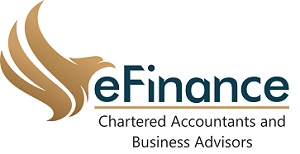Are you a business owner looking for funding options to grow your enterprise? Revenue based business loans are gaining popularity as an alternative to traditional loans, but is this financing option suitable for all businesses? In this article, we’ll explore some pros and cons of revenue based business loans and help you decide if it’s the right choice for your company.
Introduction to Revenue Based Business Loans
Revenue based business loans (RBLs) are a type of financing that allows business owners to borrow money against their future sales. In most cases, the loan is repaid with a percentage of the business’s monthly revenue. Revenue based business loans can be a great way to get access to quick cash when you need it, but there are also some downsides to consider. Here is a closer look at some pros and cons of RBLs:
PROS
1. Access to quick cash:
One of the biggest advantages of an RBL is that it can provide you with access to quick cash when you need it.
2. Flexible repayment terms:
Another benefit of an RBL is that repayment terms are often more flexible than other types of financing. that you can tailor your repayment schedule
CONS
3. High interest rates:
One downside of RBLs is that they usually come with high interest rates. This can make them expensive in the long run, especially if you’re unable to repay the loan on time.
4. Limited availability:
Another drawback of RBLs is that they may not be available to everyone. Some lenders may require a certain amount of revenue or have other criteria you must meet in order to qualify.
How to Utilise Revenue Based Business Loans
Revenue based business loans are becoming an increasingly popular financing option for small businesses, so how can you utilise them to benefit your business?
Revenue based business loans are essentially a type of short term loan that have the benefit of being able to be repaid at a potentially much faster rate than other finance types. The lender will give you a lump sum of cash upfront and then take a percentage of your monthly revenue until the loan is repaid. If cash flow is constantly increasing, your loan will rapidly be settled.
The great thing about these loans is they can be used for a variety of purposes, including funding expansion plans, hiring new staff, or even just covering unexpected expenses.
Qualifying for Revenue Based Business Loans
To qualify for a revenue based loan, your business must have been operational for at least 6 months and have consistent monthly revenue. You will also need to provide the lender with some financial information, such as your balance sheet and income statement.
Once you’ve been approved for a loan, you’ll need to decide how much you want to borrow. It’s important to only borrow what you need, as you’ll be required to repay the loan plus interest out of your future revenue.
If used correctly, revenue based loans can be a great way to finance your small business.
Who Benefits from a Revenue Based Business Loan?
Revenue based business loans are an attractive option for enterprises that have trouble qualifying for traditional loans, as it allows you to repay the loan with money that you’re already making, or have a projection to make.
For one thing, if your sales fluctuate or drop off unexpectedly, you may find yourself in a difficult situation financially. Additionally, because you’re repaying the loan with sales revenue, you’ll likely end up paying more in interest than you would with a traditional loan.
So who stands to gain the most from a revenue based business loan? Generally speaking, these loans are best suited for businesses that have steady sales but may have trouble qualifying for traditional financing. If your business is on solid footing but needs a little help getting over the hump, a revenue based loan could also be a good option. There are also companies known to have highs and lows throughout the year due to their product. Just be sure to weigh the pros and cons carefully before making any decisions.
Seasonal Businesses
If you’re like most business owners, you experience feast or famine sales cycles. Your business might do well during the summer, but then slump in the winter. Some businesses do better during the holiday season while others have to hustle to stay afloat during that time. Seasonal businesses often have a hard time qualifying for loans because their revenue is not consistent throughout the year. However, there are now lenders who offer revenue based loans specifically for businesses with seasonal fluctuations in income.
Subscription Businesses
Revenue based business loans are a great option for businesses that have a reliable source of revenue but may not have the collateral or credit score necessary to qualify for a traditional bank loan. Always bear in mind that with revenue based business loans you are required to give up a percentage of your future sales in order to secure the loan. This means that if your business falls into a downward trend, you could end up owing more money than you would with a traditional bank loan. Make sure you understand all the terms and conditions of the loan before signing anything so that you know exactly what your enterprise can capitalise on.
Conclusion
Revenue based business loans are a great option for businesses looking for financing to grow their operations and remain competitive. However, due to the unique structure of these loans, it’s important that entrepreneurs consider both the pros and cons before committing. Those willing to accept the associated risks can stand to make significant gains if they use these funds wisely, while those not ready may find themselves in an unfavourable position down the line. Ultimately, understanding how revenue based business loans work is key in determining whether or not they are right for your company.






